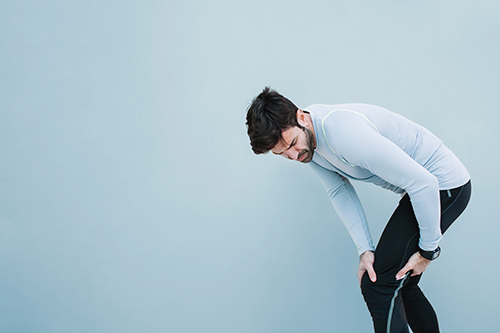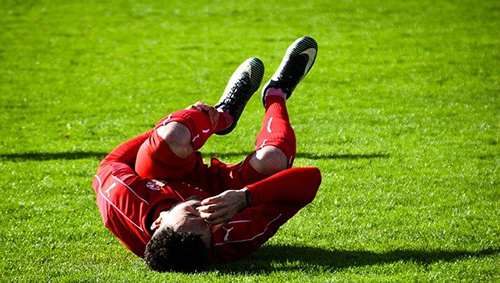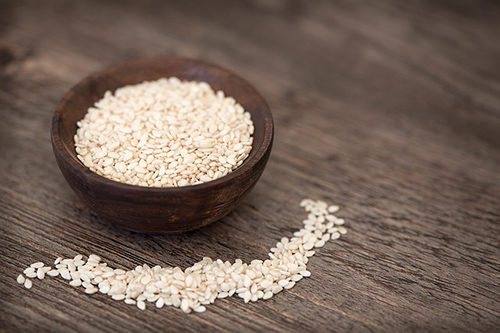Contents
What causes muscle cramps? If you’ve ever experienced a muscle cramp, you know how painful it can be. Therefore, this is a question I know that you have asked yourself many times. Although no one knows what causes muscle cramps, some contributing factors may hasten them.
Muscle cramps occur when muscles in some localized regions go into violent spasms, most commonly seen in the muscles in the calf, back of the thigh, and feet. These involuntary, painful muscle contractions often occur at night.
What causes muscle cramps all over the body

Some of the factors that hasten muscle cramps include:
- Severe cold
- Poor circulation to the affected area
- Overexercise of the muscle
- Stretching the muscle too much
- Pointing the toes forward (extending the foot)
- Dehydration (lack of sufficient water intake)
What causes severe leg cramps at night?
Leg cramps at night frequently wake some people up with extreme pain. However, the condition is harmless. Something in the muscle (lack of oxygen, excess lactic acid, faulty relaxation) triggers a reflex response from the spinal cord. This contraction, in turn, further stimulates the sensory nerves, causing another reaction from the cord, which increases the spasm.
Swimmer’s cramps are similar to night cramps. It occurs more often among swimmers who kick with their feet stretched out. Avoid overextending your feet while swimming.
How to prevent muscle cramps
Now that we have answered the question of what causes muscle cramps? Let’s look at how to stop and prevent them. Once the cramp occurs, it will eventually relax on its own accord. To hurry its relaxation, try contracting the muscles that move in a direction opposite to that which the cramping muscles are pulling.

For instance, if your calf muscles are in spasm and drawing your foot downward, hold the foot in that position while trying to draw the foot upwards (toward your shin). This may provide immediate relief. Do not stretch the cramped muscle too far. Another suggestion is to stand on the balls of your feet while raising and lowering your heels.
Some people obtain relief by gently massaging the affected areas. Raising the foot of the bed helps others. A warm footbath, which increases the circulation in the legs and feet, will also give relief and, if taken before bed, will frequently prevent their occurrence. Heavy bedclothes that force the foot forward (toward the sole) may precipitate an attack.
Another great tip on how to prevent muscle cramps is to try using a cradle or pillow under the covers to remove the weight of the covers from the feet. Drink plenty of water, especially during demanding physical activities and especially in hot weather.
A simple exercise done during the day may also help. Stand erect in stocking feet. Lean forward, keeping your heels on the floor until you feel a pulling sensation in the calf muscles. Hold for ten seconds, then repeat after a five-second interval of rest. Do this five times, two or three times a day, until the night cramps disappear.
Foods that help with muscle cramps
WATER: Cramps are more common when there is some level of dehydration. Drinking sufficient water, particularly in summer, helps prevent cramps.

MAGNESIUM: Magnesium for leg cramps makes sense because it is a muscle relaxer. Its lack produces muscle spasms. Seeds (squash, sunflower, sesame), oil-bearing nuts, and legumes are the best sources.

POTASSIUM: Potassium deficiency due to diarrhea, vomiting, or diuretic medications predispose to muscle spasms typical of cramping. All fruits and vegetables, particularly bananas, are good sources of potassium.
VITAMIN B: Lack of vitamin B vitamins can lead to cramps, particularly B2 and B6. Wheat germ and brewer’s yeast are good sources of these vitamins.

PURIFYING BROTH: You can prepare this broth using vegetables rich in alkalizing mineral salts, such as celery and onion. A cup of this broth at bedtime helps with leg cramps at night.
FRUIT: Fruits rich in minerals like potassium and magnesium, water, and specific amounts of vitamins B2 and B6 are great muscle cramp remedies. Fresh fruit juices are also beneficial.
ISOTONIC BEVERAGES: These are specifically prepared beverages that provide certain minerals in the appropriate proportions to replace those lost through sweat.
Top Products for Muscle Cramps
DISCLAIMER: All content on this website is presented solely for educational and informational objectives. You should not rely on the information provided as a replacement for advice, diagnosis, or treatment from a qualified medical expert. If you are pregnant, nursing, or have any preexisting medical concerns, you should talk to your doctor before using any herbal or natural medicines.
REFERENCES
- George D. Pamplona-Roger, M.D. “Encyclopedia of Foods and Their Healing Power.” George D. Pamplona-Roger, M.D. Encyclopedia of Foods and Their Healing Power. Trans. Annette Melgosa. Vol. 2. Chai Wan: Editorial Safeliz, 2005. 318. Print. [What causes muscle cramps]
- Hardinge, Mervyn G., and Harold Shryock. “Family Medical Guide.” Hardinge, Mervyn G., and Harold Shryock. Family Medical Guide. Ed. Marvin Moore and Bonnie Tyson-Flynn. Vol. Three. Oshawa; Washington, D.C.; Hagerstown: Pacific Press Publishing Association; Review and Herald Publishing Association, 1999. Three vols. 233. Print.
- National Institutes of Health: Muscle Cramps and Spasms
- Mayo Clinic: Muscle cramps
- Harvard Health Publishing: Muscle cramps: Stretching, hydration, and other tips for relief
- Examine.com: How could diet affect muscle cramps?
- Potassium: WebMD – Foods That May Help With Muscle Cramps
- Magnesium: Healthline – 12 Foods That May Help with Muscle Cramps
- Calcium: Health – Eating These Foods Can Help Prevent Muscle Cramps
- Sodium and Dehydration: Examine.com – How could diet affect muscle cramps?
- Vitamin B12 and D: National Institutes of Health – Office of Dietary Supplements – Vitamin B12 and Vitamin D
- Water intake: Mayo Clinic – Dehydration
- Processed foods: Examine.com – How could diet affect muscle cramps?
- Food sensitivities: National Institutes of Health – Food Intolerances and Food Allergies
- Pre-exercise nutrition: American College of Sports Medicine – Position Statement: Nutrition and Physical Performance
- Food combinations: Healthline – 12 Foods That May Help with Muscle Cramps
- Night cramps and magnesium: National Sleep Foundation – Night Cramps
- Muscle overuse and strain: American Academy of Orthopaedic Surgeons – Muscle Strain
- Seeking professional help: Mayo Clinic – Muscle cramps
- Academy of Nutrition and Dietetics: Find a Registered Dietitian
- American College of Sports Medicine: Certified Sports Dietitians
